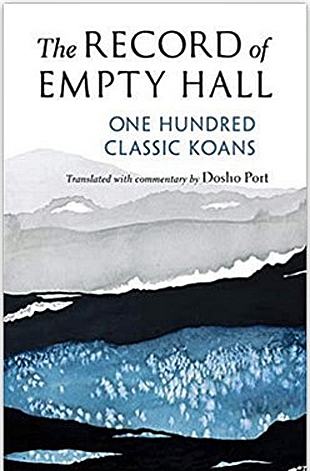The translator and commentator of these koans, Dosho Port, received dharma transmission in Minneapolis in 1989 in Soto Zen. He has also practiced monastically and in 2015 received inka shomei, or teaching authority in koans. That’s like a PhD in koan interpretation. Even more noteworthy, Port says that his hope is “that I might be better able to practice awakening.”
These 100 classic koans — all at least 800 years old in their original form — in translation, with commentary, are surely a great starting point.
The language and tone are playful and accessible. The translator/commentator talks of “sharing these goodies with you,” and that’s the presentation feel of what could have been a dry affair. There’s a lot of Zen scholarship that seems designed only for “insiders.” This is not that kind of book.
Each koan is brief and originated with a Zen master named Xutang Zhiyu, who lived in China 1185-1269. The koan is set apart from the commentary on the book page. (See the excerpt accompanying this review, for an example.)
You’ll want to sit with the koans, rereading them or not thinking about them, just taking a walk in their shadow. Then you’ll enjoy Dosho Port’s lively commentaries. Remember that a koan is not for your mind alone, but for your “heart-mind.”
